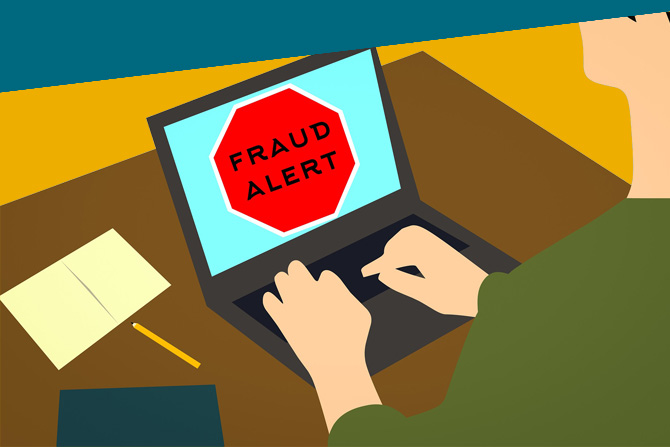Most Common Identity Theft Scams and What You Can Do About Them
June 11, 2018

Concerns about the privacy of our personal information seem to hit the headlines just about every day. It’s easy to get tired of the coverage and tune it out. But that’s a response we need to resist when it comes to identity theft.
There are the spectacular stories like Frank Abagnale who was the basis for the Leonardo DiCaprio film “Catch Me If You Can” or Frederic Bourdin who played the role of some 500 different people over his lifetime. Most situations are much less dramatic, but they can be just as damaging to those affected.
Vulnerable data can be stolen from a huge range of sources and may include your name, address, credit card or bank account numbers, Social Security number, phone or utility account numbers, medical insurance numbers and claims, and passwords. In terms of broad impact, some $16 billion was reportedly stolen from 15.4 million consumers in 2016 alone.
The damage done by identity theft depends upon the information stolen, and ranges from simple inconvenience and frustration to emotional trauma and financial disaster. Moreover, the impact may be felt for years to come.
What Are the Consequences of Identity Theft?
Four types of impacts are often described:
Financial - Damage to bank and investment accounts, credit cards, credit score, home mortgage, insurance benefits (including Social Security), income tax returns/refunds, job applications
Emotional - Anger, stress, anxiety, depression, fear for personal safety
Physical - Disruption of sleep and appetite, lack of focus, heart and stomach problems
Social - Injured reputation and personal relationships, unfounded legal claims or arrest
A 2016 survey by the Identity Theft Resources Center found that 55 percent of those victimized by criminal identity theft missed work, 44 percent lost out on an employment opportunity, and 29 percent needed government assistance.
What Common Signs Should I Watch Out For?
Unfortunately, the types of common identity theft scams out there are limited only by the human imagination. It might seem a bit daunting to monitor, but the stakes are high if you don’t. Here are some examples of scams:
- Hacking existing accounts
- Bogus new accounts
- False tax filings
- E-mails from the “IRS” asking for personal information
- Unauthorized medical claims and expenses
- Child’s stolen Social Security number
- Preying on seniors
- Altered criminal and arrest records
- Synthetic combination of real and fabricated information
- Family estate (accounts, loans, benefits)
- Romantic (online trolling, social media, dating sites)
- Electronic card skimming at ATMs
- Payroll/HR (fake requests for W-2 forms)
- Malware and phishing
- Online search results (too good to be true offers that require personal info)
What Should I Do If It Happens?
Be vigilant and take action.
It’s easy, but it requires a commitment. Monitor any location where your personal data is revealed and watch out for anything that looks suspicious. Seek help immediately if you think there may be a problem.
Some proactive steps to enlist are shredding documents with personal information before throwing them away, using anti-virus software and password protection, being very careful about sharing personal information online or over the phone, and deleting information from digital devices before selling or donating them.
You should review your account statements at least monthly, and check your credit report periodically. And don’t overshare on social media, give out your Social Security number too freely or throw credit applications in the trash.
If you think you are a victim of identity theft, seek prompt assistance from the three major credit reporting agencies, your bank, the Social Security Administration, IRS, Federal Trade Commission, law enforcement agencies and various identity protection services.
Did you know that Keenan has partnered with a service called IDTheft Assist to help protect your important information?









